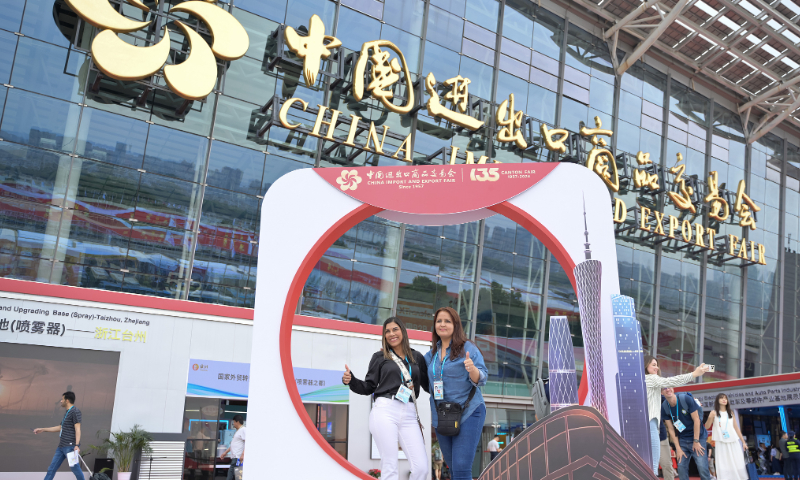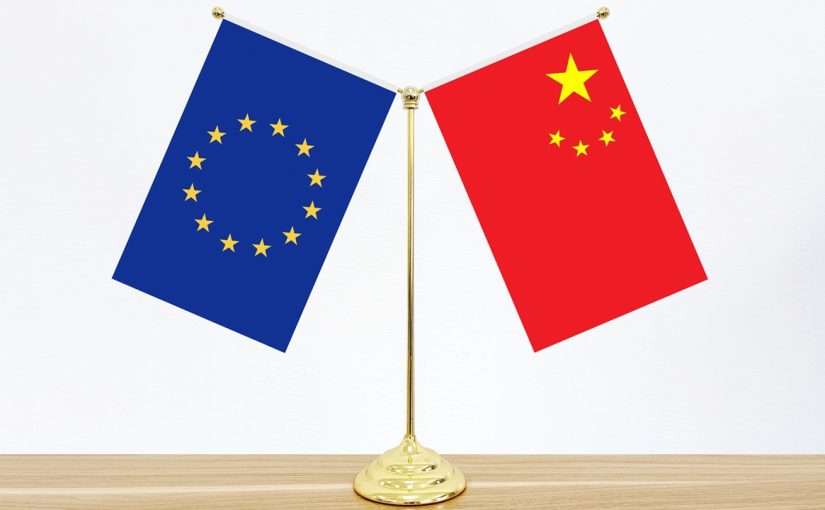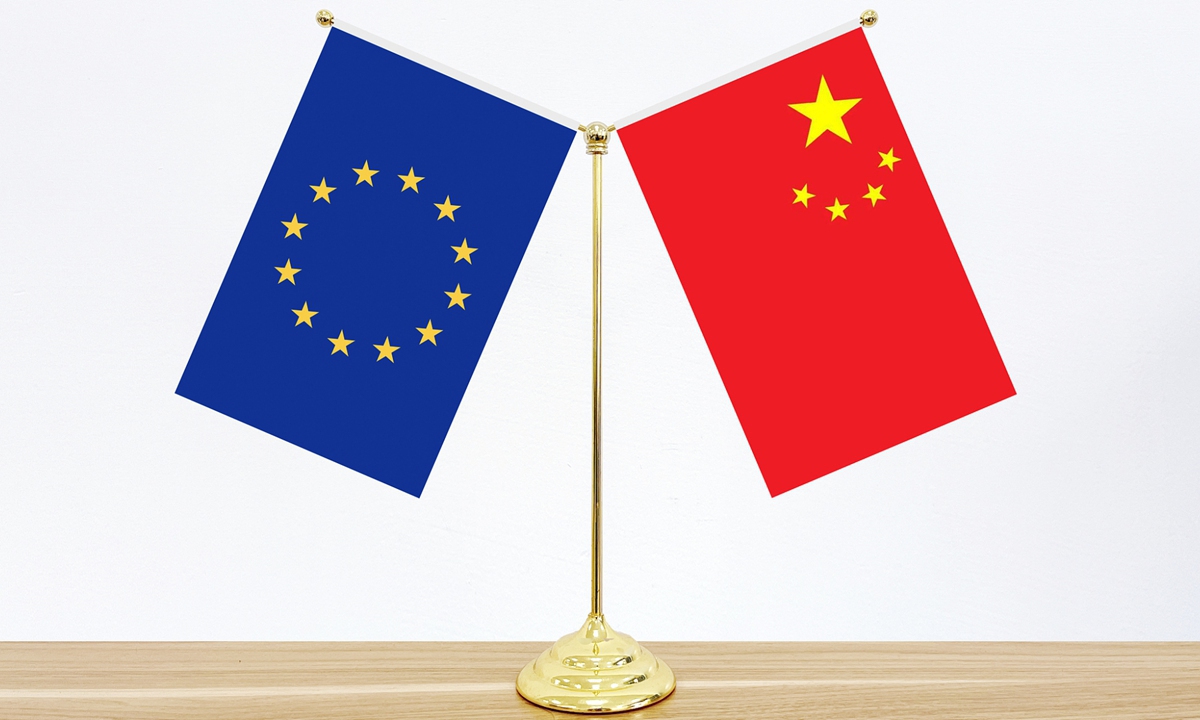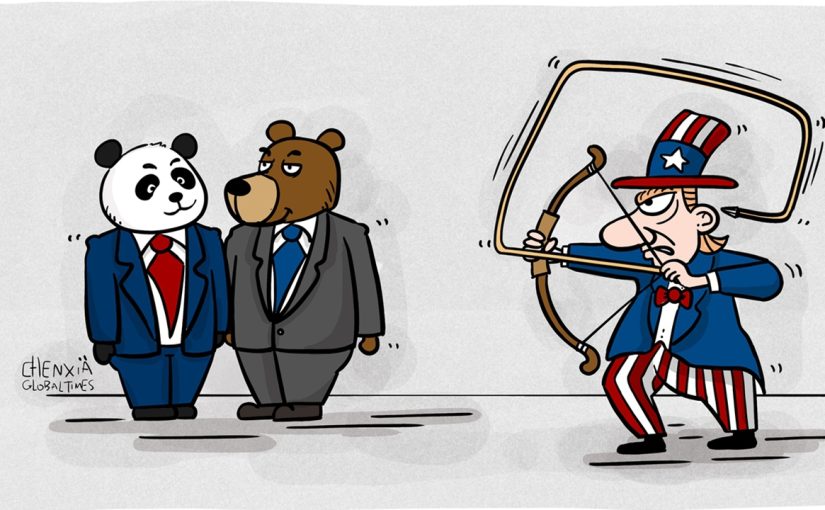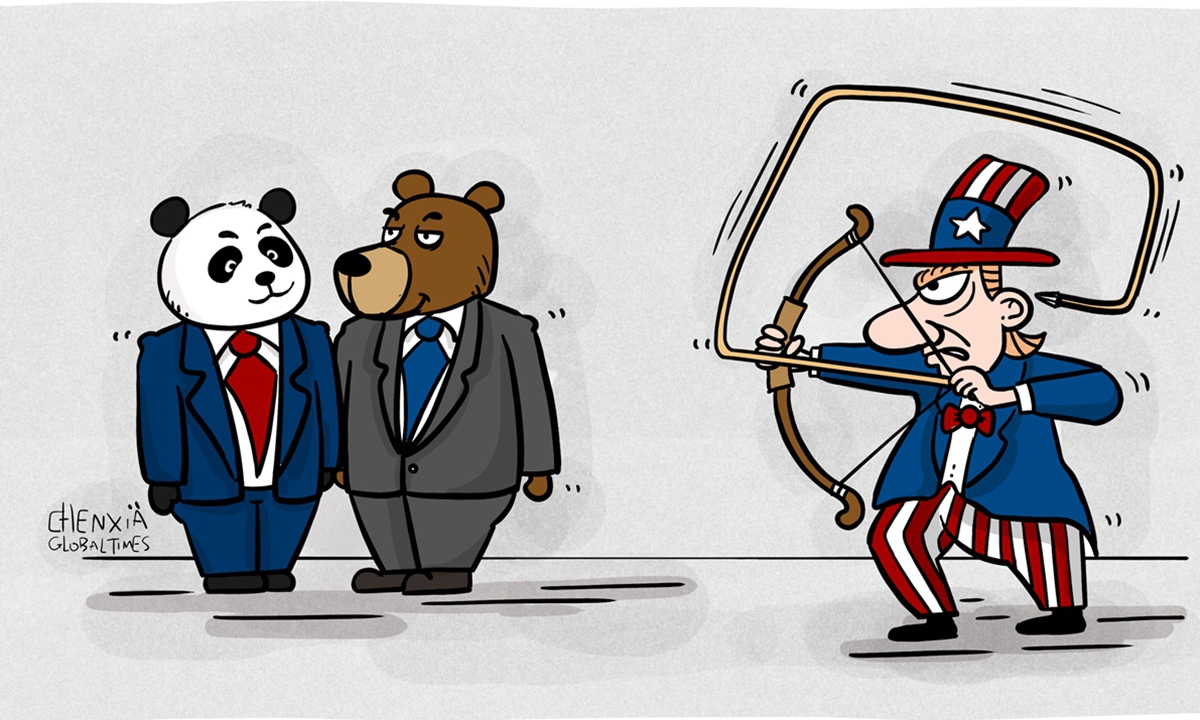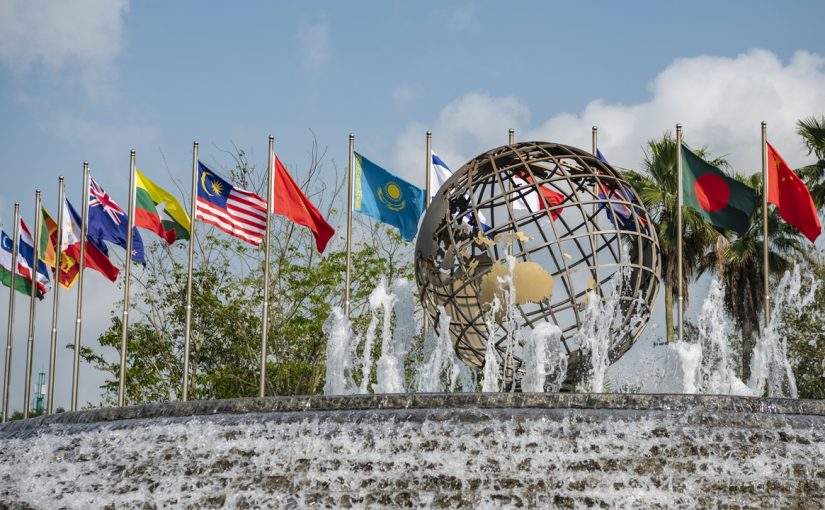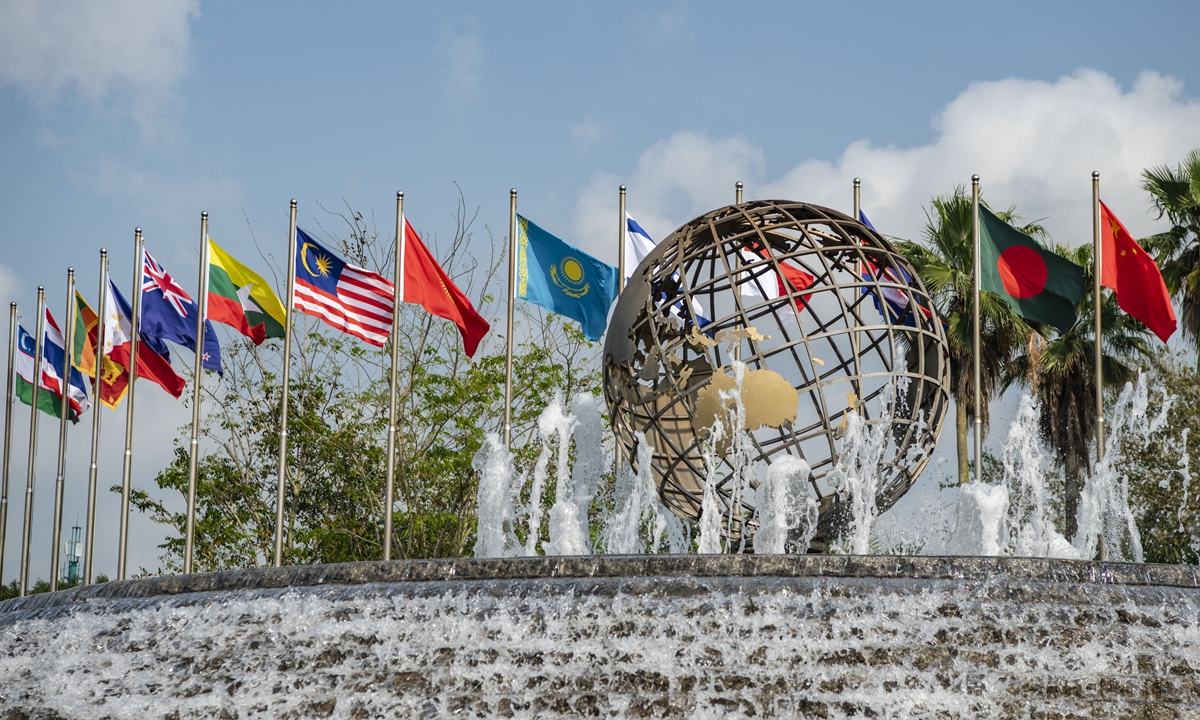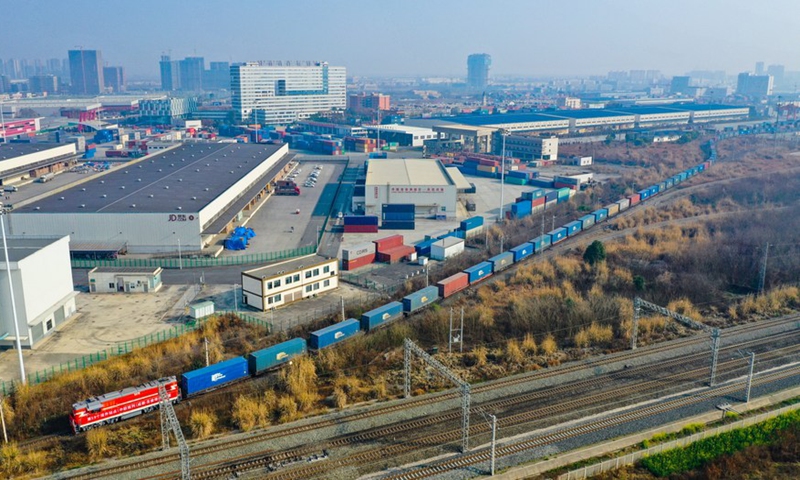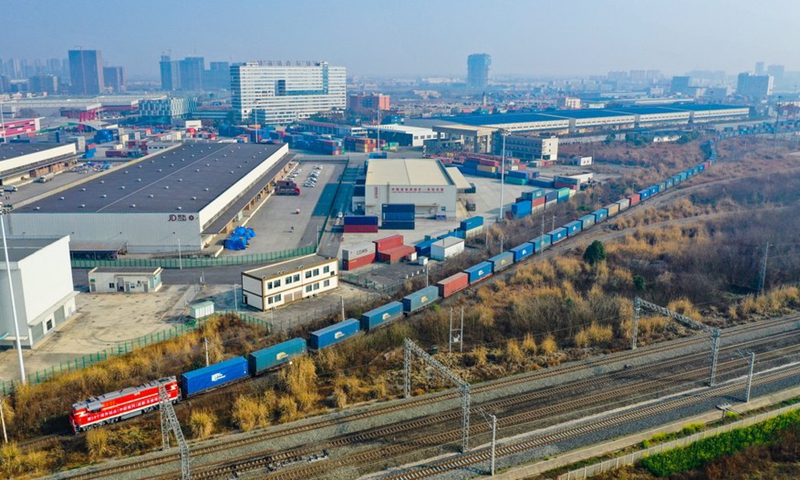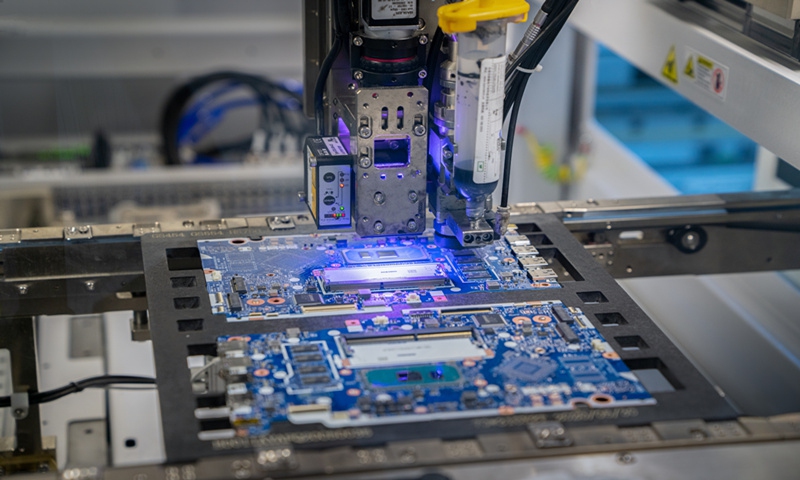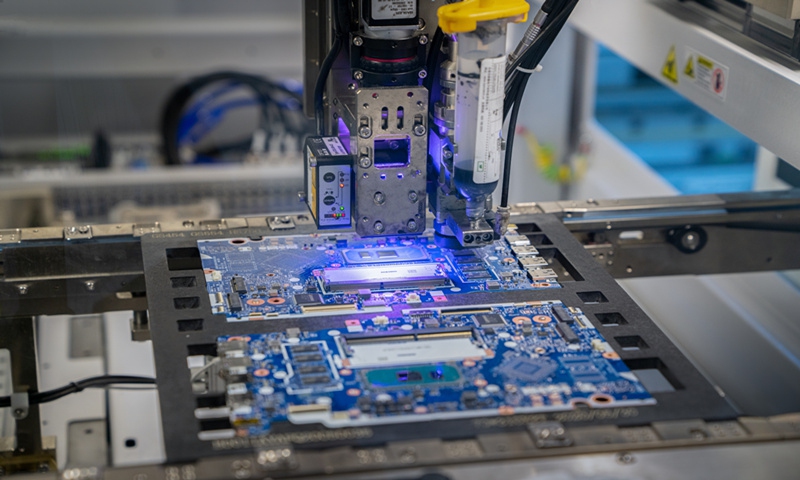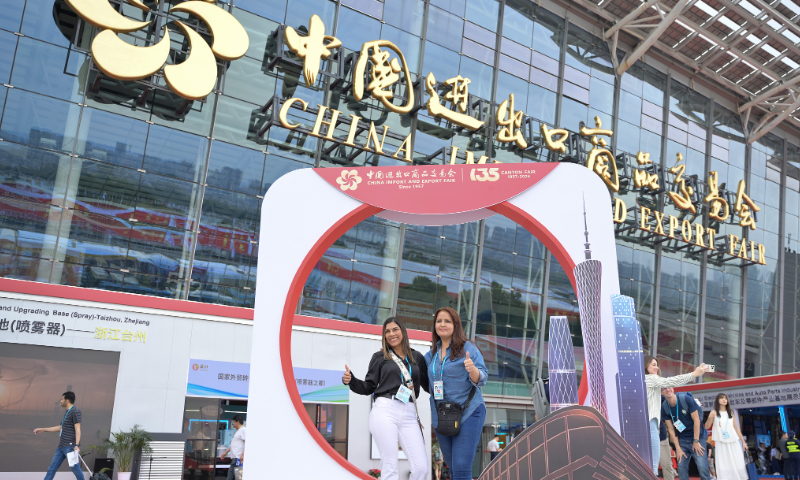
Purchasers take a photo outside the 135th China Import and Export Fair exhibition hall on April 15, 2024. Photo: VCG
The 135th China Import and Export Fair (Canton Fair) opened on April 15. On the basis of last year’s record high exhibition area and number of participating companies, this year’s Canton Fair has once again seen a significant increase in scale, with a total of 29,000 exhibiting companies, continuing the overall trend of becoming more lively year by year. According to media statistics, just one hour before the opening, over 20,000 overseas purchasers flooded in, with 40 percent of them being new purchasers. Against the backdrop of turmoil in the Middle East causing market worries, the grand and bustling opening of the Canton Fair has brought certainty to global trade.
Themed “Serving High-Quality Development, Promoting High-Level Opening-up,” this Canton Fair is held offline in three phases. As China’s barometer and compass for foreign trade, the outside world first perceives the strength and determination of China’s development and opening-up from the Canton Fair. In fact, since 1957, the Canton Fair has been held twice a year without interruption, which is unique among major countries in the world. China’s consistent goodwill and sincerity toward the world are tangible and visible.
Now, the Canton Fair has grown from a window of Chinese manufacturing to a platform for world manufacturing. In particular, the first phase of the exhibition, themed “Advanced Manufacturing,” highlights advanced industries and technological support, showcasing new quality productive forces. Over 5,500 high-quality characteristic enterprises with titles such as national-level high-tech enterprises, champions in manufacturing industry categories, and specialized and innovative “Little Giants” have participated, representing a 20 percent increase compared to the previous session. This is not only a natural presentation of China’s manufacturing industry climbing to the high end of the global industrial chain and value chain, but also will benefit the world, creating more opportunities and dividends. This is the true interaction between China and the world.
This kind of interaction is by no means a one-way output from China to the world. In the descriptions of some Western public opinions, China has been accused of dumping excess cheap goods to the world, squeezing the development space of other countries, and profiting from it. However, anyone who visits the Canton Fair exhibition site and takes a look around will easily understand why doing business with China is so popular. Take this session of the Canton Fair as an example, the number of top retailers and major businesses from various countries and regions has significantly increased. Among them are Walmart, Best Buy, and Amazon from the US; Auchan, Carrefour, and Schneider from France; Tesco from the UK, and Metro AG from Germany. Nearly 200 leading companies have confirmed that they will form groups to participate in the fair. If these companies that truly engage with China were to paint a picture of China, it would be completely different from the portrayal by many “keyboard warriors” who have never been to China. Compared to their speculative predictions, the substantial deals made at the Canton Fair should be a more reliable indicator of the Chinese economy.
At the same time as the opening of the current Canton Fair, German Chancellor Olaf Scholz is leading a large delegation on a visit to China. Meanwhile, the Chinese Ministry of Commerce delegation was discussing economic and trade cooperation issues with their Italian counterparts. At a broader level, projects in countries along the Belt and Road are being launched one after another, and flights to and from China are carrying business elites from around the world. Cooperation with China has become a trend that few Western politicians can intimidate or stop.
The Canton Fair has opened a door for mutual achievement between the world and China, and it is undoubtedly quite successful from any perspective. It can be fully anticipated that the transaction volume of this year’s Canton Fair will have a promising increase. This is not only the result of internal logic, but also the inevitable outcome of the current international political and economic situation. In the global industrial structural transformation, it is easy to see that China has the most powerful driving force for upgrading and transforming the national economy. For the world, especially in the current situation of continuous local conflicts and turmoil, such a comprehensive international trade fair with a wide source, good transaction results, and considerable reputation is also an important public product contributed by China. The more turbulent the world situation is, the more prominent the value of such a trade fair becomes.
